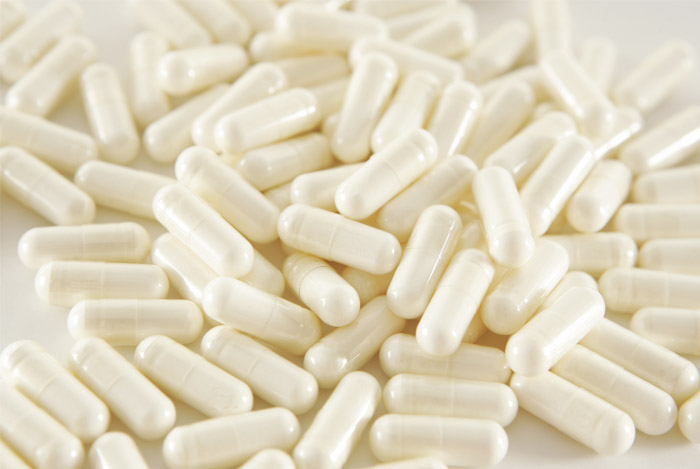Nobody likes being sick. That’s why modern medicine has put such importance on efficient diagnosis – they want to be able to tell their patients exactly what’s wrong with them and how to fix the problem.
But what if you had a whole range of seemingly unrelated symptoms that kept recurring, regardless of what medicines and treatments you underwent?
If this sounds like you, there’s a possibility you may be suffering from leaky gut syndrome. Sounds scary, right?
I thought so too, so I decided to get to the bottom of it.
Let’s look into the causes, the symptoms, and most importantly, how to plug the leak when suffering leaky gut syndrome.
What causes leaky gut?
 Your gut is a naturally permeable structure, allowing it to absorb vital nutrients in the form of small molecules. The basic function of the cells that line the intestinal wall is to regulate this permeability.
Your gut is a naturally permeable structure, allowing it to absorb vital nutrients in the form of small molecules. The basic function of the cells that line the intestinal wall is to regulate this permeability.
But in some cases these cells can be disrupted and damaged. For instance, foods containing gluten can cause the cells in the gut to release zonulin, a protein that forces tight junctions in the intestinal lining to break apart.
Infections, stress, age-related weaknesses, and certain toxins all contribute to these tight junctions breaking apart. Inflammatory foods like dairy, excess sugar, and alcohol, are suspected to be likely culprits in exacerbating these breakdowns.
According to proponents of the leaky gut hypothesis, the tight junctions being opened up causes your bowel lining to become irritated and “leaky”.
Once this has occurred, all those nasty toxins, microbes, undigested food particles, and whatever else happens to be moving around in there, can escape from your intestines, make their way into your bloodstream and travel throughout your body.
This freaks your immune system out, forcing it to target these escapees as hostile invaders, or pathogens, and attacks them.
The ensuing immune response, similar to that experienced by celiac disease and Crohn’s sufferers, is what practitioners who support the leaky gut hypothesis believe to be causing a set of miserable symptoms that would otherwise be categorized under a different diagnosis.
Signs of a Leaky Gut
 You may have a leaky gut if you’re experiencing any of the following:
You may have a leaky gut if you’re experiencing any of the following:
- Food allergies
- Candida overgrowth
- Skin conditions like acne and eczema
- Autoimmune disease like rheumatoid arthritis, lupus, thyroiditis, psoriasis, or celiac disease
- Digestive issues like bloating, diarrhea, IBS
- Hormonal imbalances
- Depression, anxiety, ADHD
- Recurring migraines
- Asthma
- Chronic fatigue syndrome
New research from Sweden has found a connection between intestinal permeability and visceral fat, the kind of fat that gathers around your internal organs, indicating that leaky gut could be leading to exponential weight gain and worsening health.
Antibiotic Resistance: A Major Factor in Leaky Gut Syndrome?
 In today’s society, when you have a runny nose or a sore throat, you probably schedule a doctor’s appointment hoping they’ll pull out their prescription pad and get you on some antibiotics.
In today’s society, when you have a runny nose or a sore throat, you probably schedule a doctor’s appointment hoping they’ll pull out their prescription pad and get you on some antibiotics.
Antibiotics are awesome, but because we’re using them so much, they might not be so effective soon.
Being prescribed and taking antibiotics when they aren’t the proper treatment, especially in the case of viral infections, means the antibiotic will be attacking bacteria in your body. But they attack both good and bad bacteria, lowering bacteria that may actually be beneficial, or at least not causing any disease.
In fact, antibiotic use is so common, bacteria are becoming immune to them. That means when we get sick in the future, what might have been a simple cure with a dose of antibiotics, could be a life threatening illness.
You don’t want the beneficial bacteria in your body to be wiped out, allowing the bad guys to take over. So before taking antibiotics, make sure the ones prescribed to you will actually be effective in targeting whatever illness your doctor has prescribed them for.
Fighting Leaky Gut
1. Diet
 One of the key practices you can incorporate into your life if you want to stave off the possibility of a leaky gut (and benefit your health in general) is to adopt a well-balanced diet.
One of the key practices you can incorporate into your life if you want to stave off the possibility of a leaky gut (and benefit your health in general) is to adopt a well-balanced diet.
It’s of the utmost importance that you limit or altogether eradicate your intake of processed foods. I’m talking about fast foods, prepackaged, unnatural products you find for dirt cheap in your restaurants and supermarkets.
When you decide what food to buy and eat, make sure you’re choosing whole, nutrient dense foods that won’t irritate your gut. Avoid excess grains, legumes, dairy products, refined sugars, and alcohol.
Your goal in dieting is to heal the lining of your intestine, so avoid any unhealthy foods that could be contributing to the problem.
There are also a few interesting additions you can make to your diet that have been called likely cures for intestinal permeability. One weird recommendation I’ve come across again and again is bone broth.
Bone broth is a slow-cooked soup made from using the bones of anything from chicken to beef. While it sounds a little creepy, it’s actually filled with nutrients – calcium, magnesium, and collagen – which can help tremendously with digestion, immunity, and skin issues.
2. Make sure you don’t have food allergies
 If you’re allergic to any particular foods, these might be playing a primary role in worsening your leaky gut.
If you’re allergic to any particular foods, these might be playing a primary role in worsening your leaky gut.
Gluten sensitivity and lactose intolerance, among others, are becoming more and more prevalent and you might be suffering from either without realizing it.
An estimated 6 to 8 percent of children and 3 to 4 percent of adults in the United States are afflicted by these food allergies, and as a result can experience nausea, vomiting, cramping, and diarrhea, or combinations of these symptoms.
If you suspect you may have a food allergy, cut it out of your diet completely for a period of at least 30 days. Then try reintroducing it.
If you start recognizing an immediate change in your health, you’ve found at least one culprit in your leaky gut syndrome.
If you already have something like celiac disease, it’s crucial to your health that you identify what foods (usually containing gluten) you cannot eat, and avoid them at all costs.
3. Eliminate stress
 Findings ways to reduce or eliminate stress from your life will not only help your leaky gut syndrome, but can also lead to a number of other mental and physical health benefits.
Findings ways to reduce or eliminate stress from your life will not only help your leaky gut syndrome, but can also lead to a number of other mental and physical health benefits.
While stress is a broad term, it can refer to any real or perceived threat to the homeostasis of you as an organism, which can elicit all kinds of physiological responses you have little control over.
Your gut is especially vulnerable to stress. It’s been shown to lead to permeability and barrier function damage, changes in gastric secretion, gut motility, visceral sensitivity, and mucosal blood flow.
Controlling your stress can be as easy as exercising, getting more sleep, or scheduling a regular massage. Stopping what you’re doing when you feel that creeping anxiety related to chronic stress, and taking deep breaths can help keep you calm and at ease.
Meditation can help reduce stress. While it sounds like something you’d be doing in a yoga class, there are lots of resources online that can teach you techniques to do it in the comfort of your own home. If you spend time doing it every day, you can better manage your stress, and keep your gut healthy.
4. Maintain a healthy gut environment
 The gut itself is a whole world of its own, filled with hundreds of different species of bacteria, some good, and some bad. According to Dr. Mercola, the ideal balance of beneficial to pathogenic bacteria is about 85% good to 15% bad.
The gut itself is a whole world of its own, filled with hundreds of different species of bacteria, some good, and some bad. According to Dr. Mercola, the ideal balance of beneficial to pathogenic bacteria is about 85% good to 15% bad.
The scientific community continues to learn more and more about the importance in the role gut flora plays in our overall health.
The best way to control the gut flora is through proper nutrition. Eating more fermented foods like yogurt on a regular basis can greatly improve the gut environment.
And, as mentioned before, when you take antibiotics, the gut environment goes through a lot of changes, often creating an imbalance where the bad bacteria starts overtaking the good.
It’s important to help correct this balance as much as possible if you want to fight off the negative effects that can culminate in or worsen leaky gut syndrome.
5. Consider probiotic and enzyme supplements
 Probiotics are definitely the most important supplement for you to look into if you believe you’re suffering from leaky gut. These healthy bacteria help replenish good bacteria and tips the scales in your favor when it comes to a healthy gut environment.
Probiotics are definitely the most important supplement for you to look into if you believe you’re suffering from leaky gut. These healthy bacteria help replenish good bacteria and tips the scales in your favor when it comes to a healthy gut environment.
You can take digestive enzyme capsules at the beginning of each meal to ensure your foods are better digested, decreasing the chance that those foods might damage or irritate your gut wall.
L-glutamine is an essential anti-inflammatory amino acid that helps strengthen and repair your intestinal lining. When you take 2 to 5 grams a day, you’re protecting your intestine from further damage by coating your cell walls and repelling irritants.
Quercetin belongs to a group of plant pigments called flavonoids, which give many plants their coloring. These flavonoids have been shown to improve gut barrier function by supporting the creation of tight junction proteins. Quercetin has also been shown to be pretty effective in healing ulcerative colitis.
6. Reduce your exposure to harmful toxins
 There are several ways to reduce your exposure to harmful environmental toxins:
There are several ways to reduce your exposure to harmful environmental toxins:
- Choose organic foods
- Replace your conventional cleaning products with “green” products
- Avoid second-hand smoke (or quit smoking!)
- Choose glass food storage containers instead of harmful BPA-containing plastics
- Use natural beauty and skin care products
These steps can help keep your body healthier in general, not just in preventing and fighting leaky gut syndrome – I’d recommend all of them regardless of whether you’re suffering from illness or not!
There is no single, simple solution to overcoming leaky gut syndrome. It requires a multifaceted, careful approach. But if you follow these steps, you’ll be sure to increase your overall health and help your body plug the leak.
Controversy Over Diagnosis
 Most experts aren’t in agreement when it comes to leaky gut syndrome. The practitioners who support the illness are largely under the umbrella of alternative medicine.
Most experts aren’t in agreement when it comes to leaky gut syndrome. The practitioners who support the illness are largely under the umbrella of alternative medicine.
“From an MD’s standpoint, it’s a very gray area”, says gastroenterologist Donald Kirby, MD, the director of the Center for Human Nutrition at the Cleveland Clinic. “Physicians don’t know enough about the gut, which is our biggest immune system organ”.
“We don’t know a lot but we know that it exists”, says Linda A. Lee, MD, a gastroenterologist and director of the Johns Hopkins Integrative Medicine and Digestive Center. “In the absence of evidence, we don’t know what it means or what therapies can directly address it”.
Because the symptoms of leaky gut syndrome have such a complicated range and can be addressed with different forms of medicine, it might not be caught initially. This leads to leaky gut syndrome being one of those illnesses where the symptoms are treated, but not the underlying cause goes ignored.
The official medical societies for gastroenterologists, rheumatologists, and internists don’t mention it at all on their websites, which leads conventional physicians to try and figure out their patients’ problems on their own. They might not even consider it because they believe it to be an unproven condition.
When it comes down to it, leaky gut is just misunderstood. In fact, a test for leaky gut was actually developed in the 1980s by UCLA researchers who were trying to get to the bottom of what caused Crohn’s and IBS.
They found that leaky gut preceded inflammation, meaning the presence of leakiness played a key role in the further development of disease.
“We did not think that it was the only etiologic factor”, says Professor Daniel Hollander, the principle investigator in the case, “but by allowing…infectious or toxic substances to penetrate the intestinal barrier…[increased intestinal permeability could] contribute to the cascade of events that culminate in active Crohn’s disease”.
The biggest problem might be the name itself. “Leaky gut” just sounds like something out of medicine from hundreds of years ago instead of an actual recognized ailment.
It’s extremely important that more research is done to gain a deeper understanding of leaky gut syndrome and intestinal permeability, and its relationship to the illnesses I’ve mentioned here today. Progress is being made faster than ever, so hopefully we’ll know more and maybe even be able to develop a final cure.
Until then, follow the steps I’ve laid out. Do your own research. Invest in your health, and don’t allow yourself to be susceptible to any worse illnesses than you already are living in our modern society.
Who knows? After we start successfully plugging all the leaks, maybe we’ll realize leaky gut is what’s been ailing us all along.
What are your thoughts on leaky gut syndrome? Let me know in the comments below!
The post How to Plug the Leak When Suffering Leaky Gut Syndrome appeared first on Nutrition Secrets.
http://www.nutritionsecrets.com/leaky-gut-syndrome-diet/
No comments:
Post a Comment